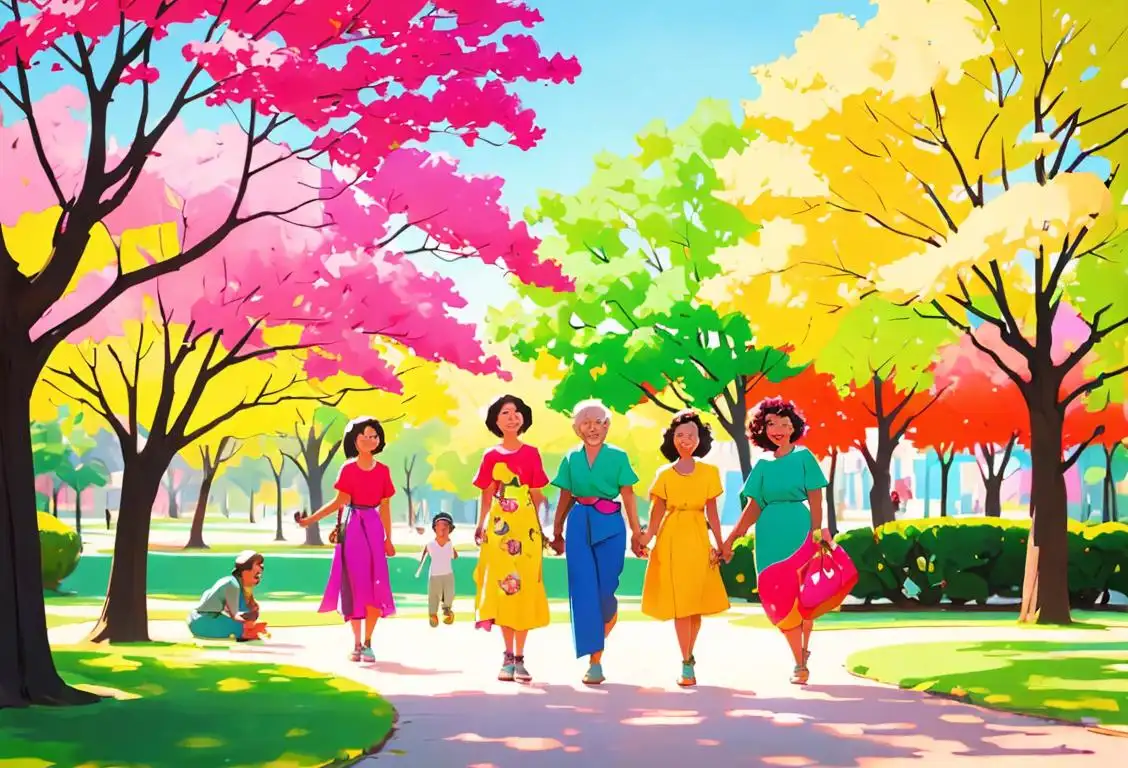National Non Complaining Day

Hey there! Get ready to leave your complaints at the door because it's National Non Complaining Day! This is the perfect opportunity to put a pause on your grumbles and embrace a complaint-free day. So, put on your positive pants and get ready for a day filled with good vibes.
When is Non Complaining Day?
It's national non complaining day on the 30th June.
The Internet History of National Non Complaining Day
National Non Complaining Day originated in the depths of the online world where people sought to encourage positivity and gratitude. The day serves as a reminder to take a break from complaining and focus on the blessings in our lives.
Online communities, social media platforms, and websites dedicated to self-improvement and personal growth began promoting National Non Complaining Day as an opportunity for people to break free from the shackles of negativity. It quickly gained popularity as individuals embraced the idea of dedicating a day to kindness and appreciation.
On this special day, people refrain from complaining and instead choose to spread positivity. They shift their focus to gratitude, expressing appreciation for the little things that bring joy to their lives.
How to Celebrate National Non Complaining Day
Celebrating National Non Complaining Day is as easy as flipping a switch from negative to positive. Here are a few ideas to get you started:
- Start the day with a gratitude journal: Take a moment to write down a few things you're grateful for. It could be as simple as a sunny day or a good cup of coffee.
- Practice mindfulness: Throughout the day, pay attention to your thoughts and emotions. When you catch yourself complaining, try to reframe the situation or shift your focus to something positive.
- Spread kindness: Take a moment to perform a random act of kindness. It could be a small gesture like leaving a note of encouragement for a co-worker or buying a stranger a coffee.
- Avoid negativity: Surround yourself with positive influences, whether it's through the people you spend time with or the media you consume. Opt for uplifting content that inspires and motivates you.
- Express gratitude: Take the time to reach out to loved ones and express your appreciation for them. A simple phone call or heartfelt message can go a long way.
Did You Know?
Did you know that complaining can actually be contagious? Research has shown that when we complain, we not only bring ourselves down but also affect the mood and energy of those around us. So, by refraining from complaining on National Non Complaining Day, you're not only improving your own wellbeing but also spreading positivity to those around you.
History behind the term 'Non Complaining'
1789
The birth of non-complaining
The term 'non-complaining' came into existence in 1789. With the advent of the Age of Enlightenment, a growing emphasis was placed on rationality and personal responsibility. This led to a societal shift where complaining was seen as a sign of weakness and lack of control over one's emotions. The idea of non-complaining emerged as a way to promote self-discipline and emotional maturity.
1850
The rise of stoicism
In the mid-19th century, the philosophy of stoicism gained popularity. Stoics believed in the importance of enduring hardship without complaint and embracing one's fate. This philosophy heavily influenced the concept of non-complaining, giving it a philosophical foundation. The stoic ideologies resonated with a society seeking to cultivate inner strength and resilience.
1913
Non-complaining enters public discourse
By the early 20th century, the term 'non-complaining' began to enter public discourse. Self-help books and personal development literature of the time emphasized the benefits of having a positive mindset and refraining from complaining. The message of non-complaining as a means to achieve personal growth and success gained traction among individuals seeking self-improvement.
1960
Non-complaining as a cultural movement
In the 1960s, the concept of non-complaining started gaining recognition as a cultural movement. Influential figures, such as motivational speakers and spiritual leaders, advocated for embracing gratitude and focusing on solutions rather than complaints. This movement aimed to shift societal norms and encourage individuals to adopt a mindset of acceptance and contentment.
Present day
Non-complaining in contemporary society
Today, the term 'non-complaining' has become an integral part of self-help, mindfulness, and personal growth practices. It is often associated with mindfulness meditation and stoic philosophy, offering individuals tools to manage their emotions and cultivate resilience. Non-complaining is seen as a pathway to personal empowerment and a way to foster empathy, understanding, and effective communication in relationships.
Did you know?
Did you know that complaining can actually be contagious? Research has shown that when we complain, we not only bring ourselves down but also affect the mood and energy of those around us.Tagged
awareness fun loved onesFirst identified
29th June 2016Most mentioned on
30th June 2016Total mentions
80Other days
Compliment Day
Cheese Pizza Day
Pumpkin Day
Medal Of Honor Day
Guac Day
Foundation Day
Suicide Prevention Day
Memorial Day
Cancer Survivors Day
Bacon Day









